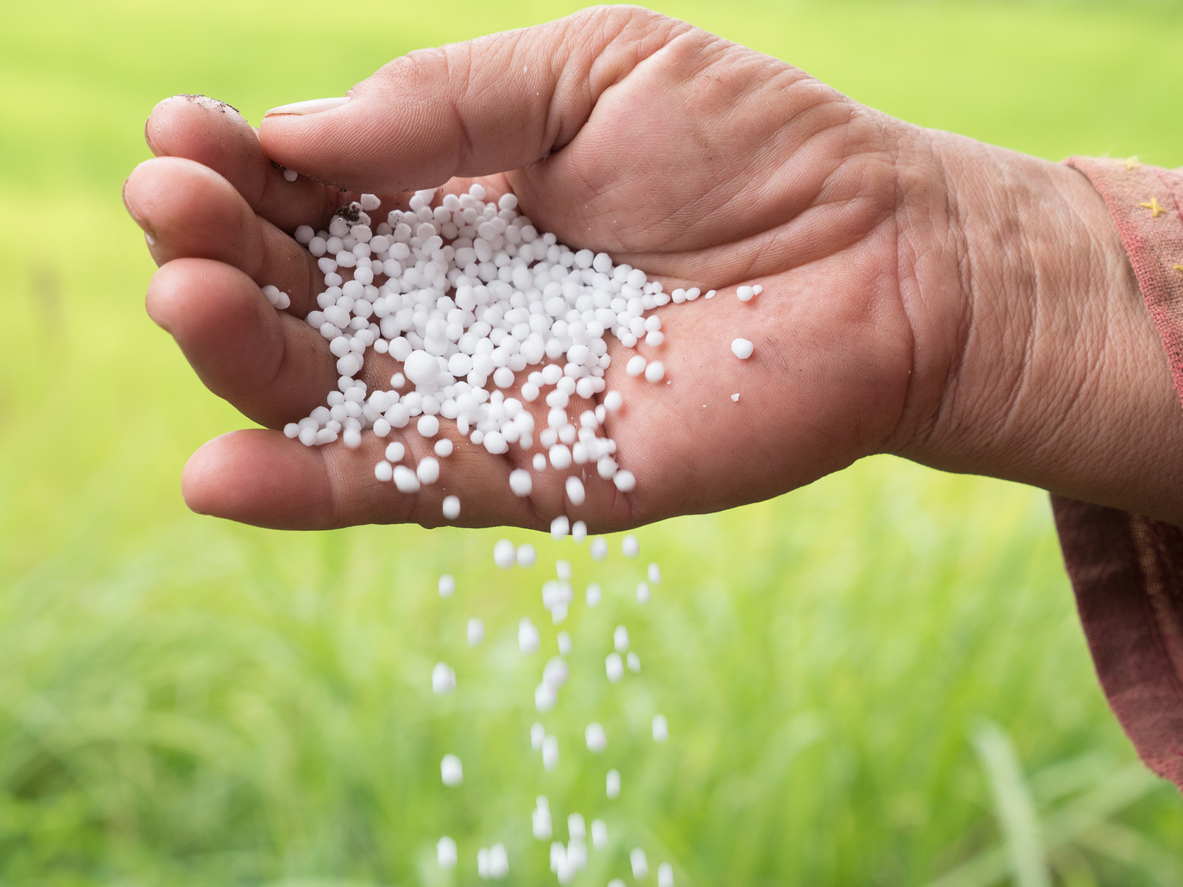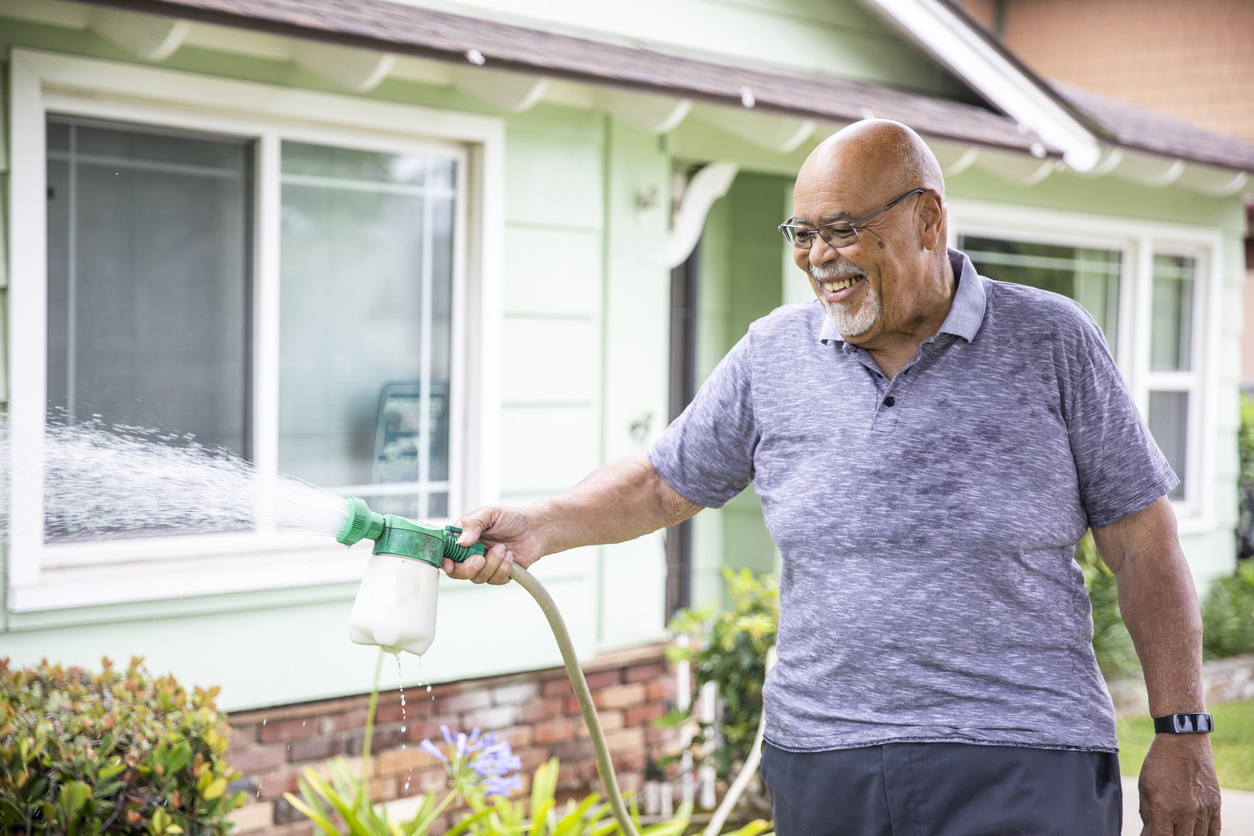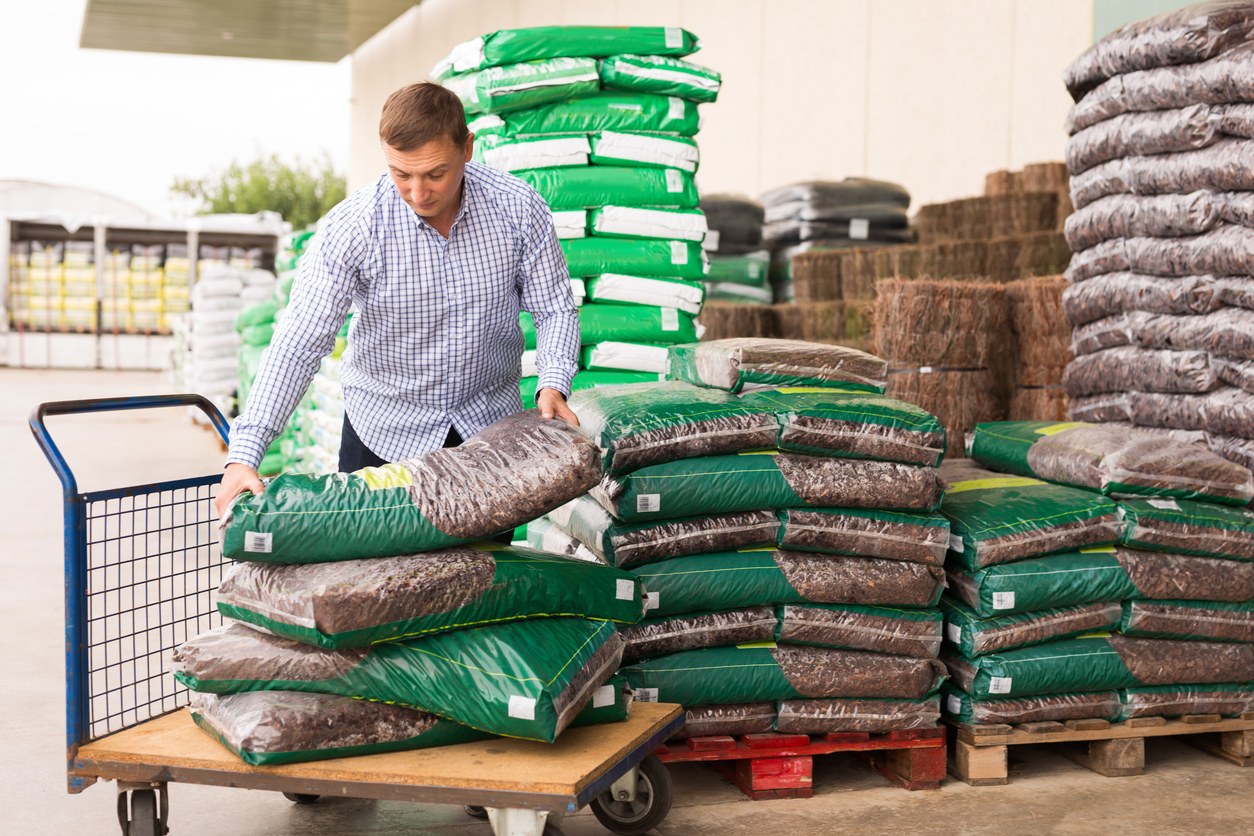We may earn revenue from the products available on this page and participate in affiliate programs. Learn More ›
Q: I buy new fertilizer every spring simply because I don’t know if what’s left over from the previous year still works. Does fertilizer go bad, and if so, how long is fertilizer good for?
A: How long does fertilizer last? Almost forever, although there may be exceptions for types containing short-lived additives like microbes and weed killers. Because of this, there are different answers to the questions, “Does fertilizer expire?” and, “Does lawn fertilizer expire?”
If properly stored under cool, dry conditions, though, most types of fertilizer can be used until you run out and have to buy more.
RELATED: Solved! This Is When to Fertilize the Lawn
Synthetic granular fertilizer can last indefinitely, if stored properly.
Does granular fertilizer go bad? No, it can technically last an indefinite amount of time. In reality, of course, it may draw moisture and grow mold, or rodents could chew holes into the bag. To keep granular fertilizer in the best conditions possible, store it in lidded, waterproof plastic buckets or boxes inside of a building (such as a shed), rather than leaving it exposed outside.
Does fertilizer go bad if wet? Should your granular fertilizer become lumpy when damp, you can simply crumble it again. Just wear a protective mask while doing so to avoid inhaling any dust or mold.
Organic granular fertilizer can last for 1 to 5 years or more.

Although some cooperative extensions warn that organic granular fertilizers’ shelf life is only 5 years, that depends on the ingredients included in a given formula. As mentioned above, fertilizers containing microbes tend to be shorter-lived products.
According to an Ask Extension expert, fertilizers containing nitrogen-rich ingredients like blood meal may leach some of that nitrogen if they get too wet or lose it in the form of gas if they get too hot. However, Espoma claims its organic fertilizers will last indefinitely when kept dry and cool. You shouldn’t need to discard organic granular fertilizer just because it’s old, but if you prefer to buy newer bags for your garden, add the older material to your compost pile.
Liquid synthetic fertilizer can last indefinitely, unless it freezes.
Does liquid fertilizer go bad? Whether sold as a fluid or as crystals to be dissolved in water, this type of fertilizer also has a long shelf life. Miracle-Gro recommends that while its liquid plant food is best used within 3 years of purchase, it remains effective for at least 8 years when properly stored, per “Kentucky Living.”
For this reason, don’t make the mistake of keeping liquid fertilizer where it can freeze, since freezing can separate some elements and decrease their effectiveness. Always shake liquid fertilizers before using them to make sure they are well-mixed.
RELATED: Does Grass Seed Go Bad?
Unopened liquid organic fertilizer can last indefinitely, if stored correctly.

The most common liquid organic fertilizers are fish and kelp emulsions. Neptune’s Harvest‘s organic fertilizers “have an indefinite shelf-life, until water is added.” The company does caution, however, that the older emulsions are, the harder you might need to shake them to properly mix them with water.
Just keep in mind that emulsions almost always have an unpleasant smell, whether they’re old or fresh. You’ll accordingly want to apply them very soon after mixing—and wash your hands thoroughly afterwards, since what’s good for your plants isn’t necessarily good for your skin!
Weed and feed fertilizers can last for about 1 to 4 years.
Does grass fertilizer expire? As the name indicates, weed and feed lawn care products often contain herbicides in addition to nutrients. Because herbicides lose their effectiveness fairly quickly (some within 1 or 2 years), these fertilizers generally have earlier expiration dates than those that don’t contain weed killers.
However, that doesn’t necessarily mean this type of lawn fertilizer goes bad, since the actual fertilizer component should still work even if the herbicide doesn’t. Miracle-Gro nonetheless recommends using lawn fertilizer within 1 year of purchase, as it will become harder to apply with a fertilizer spreader if it begins to clump.
Microbial inoculants have the shortest fertilizer shelf life and shouldn’t be used past the package expiration date.
Often considered probiotics for plants, microbial inoculants contain living microorganisms, so their shelf life can be as low as 6 months or as long as 2 years, depending on the product. Some inoculants require refrigeration, and packaging may warn against exposure to extreme temperatures.
The directions for biofertilizers containing microbes often recommend that those fertilizers be used within 3 months. However, a study published in “Agriculture” indicates these plant foods continue to contain high amounts of microbes to at least the 4-month mark, whether they are stored in darkness or in direct sunlight.
RELATED: Homemade Fertilizer Makes the Grass Always Greener
5 Tips for Storing Leftover Fertilizer at Home

- Place the fertilizer in a waterproof and rodent-proof container.
- Keep fertilizer off of the ground, placing it atop a pallet or other raised surface instead.
- Store fertilizer inside a building where it remains both cool and dry.
- Keep fertilizer out of direct sunlight and away from windows.
- If you decide to discard a fertilizer’s original packaging, label its container clearly and keep a copy of its instructions.
How to Properly Dispose of Unusable Fertilizer
The best way to dispose of fertilizer is to give old unwanted product to other gardeners who can still make use of it. If you can’t find anyone to take them, you can add organic fertilizers into your compost pile. However, for synthetic fertilizer, wait for your community’s next hazardous waste collection day and properly dispose of it then.


